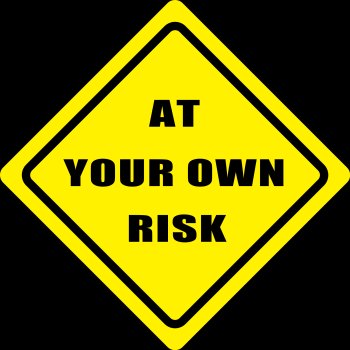Should the Frugal Lifestyle Include Risky Investments?
 This poignant commentary on the closing of the Chicago commodities exchange market place brought to mind some old investments I made that did not turn out well. I had some extra money and decided to take a chance on some investments. None of them worked out. At the time I thought, “Well, it was money I wasn’t going to do anything with anyway. C’est la vie.”
This poignant commentary on the closing of the Chicago commodities exchange market place brought to mind some old investments I made that did not turn out well. I had some extra money and decided to take a chance on some investments. None of them worked out. At the time I thought, “Well, it was money I wasn’t going to do anything with anyway. C’est la vie.”
But really I could have spent that money more wisely, either by paying down a mortgage or an automobile loan. Instead I let my fanciful hopes get the better of me and run away with dreams of becoming wealthy. Instead of taking care of my own needs I bought some investments off someone else and paid his mortgage that month.
It take me time to realize that taking care of my needs first improved my lifestyle more than I could have imagined. Doing something as simple as cutting your utility bills pays off over the long run much more than buying a hopeful investment.
In fact, finding any way to reduce your existing expenses is a better choice than, say, trying to improve your 401(k) plan allocations. Not everyone is convinced that 401(k) plans are worthwhile. And the sad truth is that I, too, have sunk more money into my 401(k) investments than I should have because all that money is now gone. I had to pay penalties for early withdrawals that just hurt me.
If you don’t plan for the immediate expenses then your long-term investments are really just a waste of time and money. What’s worse is that you dash your hopes and become disillusioned with your own ability to make good decisions. The last thing you can afford to lose is faith in yourself, because if you cannot depend on your own financial decisions you are in really bad shape.
But our personal choices are an area where we can change things almost overnight. It calls for reflection and careful review of what you have done in the past. This isn’t the sort of thing you can really work out in a single evening of feeling sorry for yourself (or angry at the world). I mean you really have to take stock of what you have in life, what you have done up until now, and what your opportunities are.
We have a lot of opportunities but they are not always the best opportunities for us. And it is a frightening thing to plunge into the unknown without a backup plan or the resources to start over if things don’t go as you hope. We really need to practice making good choices that are safe so that when the time comes to make a critical choice we’ll feel less pressure about deciding what is best for ourselves. A good choice is not built on hope but on practicality.
When it comes to investing money you should use the same common sense and goals you use when you are cutting your bills and other expenses. Take into consideration what you need and what you can afford to do without. If you are making a frugal choice you are asking yourself, “do I really need that banana split or can I do without it this hot summery day?” That’s exactly how I have learned to look at investment opportunities.
If I need the money I want to invest then the investment will not be a good a decision. The frugal question is always, “Do I really need this money or can I do without it long enough for this investment to pay off?” That may be forever but I think it’s better to say you won’t need the money for 5-10 years.
With a frugal point of view you have to balance what you need against what you hope to gain. If you can do without the money for the time it takes to earn a return on the investment then you need to look at how practical the investment is. A conservative return is more likely to happen than a radical return. You take on more risk when you plan for a high return on investment; that is really just like gambling.
But whereas you might be able to win at Blackjack just by using some common sense it takes longer to win with an investment. So you should be cold and calculating with that investment because just like winning at Blackjack you have to take what other people do into consideration with an investment strategy.
Here is an example of a simple frugal strategy that acts like an investment. You are walking through a grocery store on Sunday and you see the local paper on sale. It has a special tag on it that says, “Lots of coupons! Save hundreds of dollars on great deals!’ That paper may cost you $3-5 to buy, so you are counting on finding at least $5 in savings just to break even.
If you find $1 more in savings than you pay for the newspaper you come out ahead. And you can donate the paper to charity by dropping it off at a recycling station. So all is not wasted. This is an investment strategy that may pay off some weeks but not pay off on others. Is it really any different than playing a card game or investing in the stock market? I don’t think so.
But what I like about searching for coupons on the Internet is that you can do some research without spending any money and maybe find good coupons you can use to reduce your expenses. Hence, scouring the Web for printable coupon pages and similar Websites is a better investment strategy than buying a newspaper blindly every week. I hate to say it, but if you’re going to spend time sorting through coupons you want to save as much time as possible and broaden your choices as much as possible. Internet wins out over printed newspapers almost every time in my experience.
A risky investment is one that has less chance of paying off, not one that pays off less. A risky investment is not just a drain on your finances but also on your time. If you can afford to do without the money and the time then by all means, make the investment. But if you want to live the frugal lifestyle I think you have to take a lot more into consideration before putting your money on the line. You will never get it back if you are wrong, and your profit may cost you too much even if you are right.


